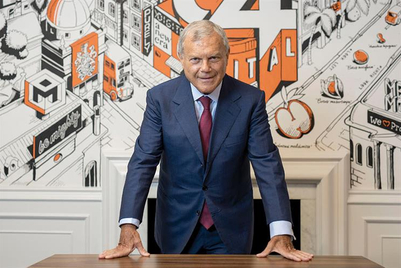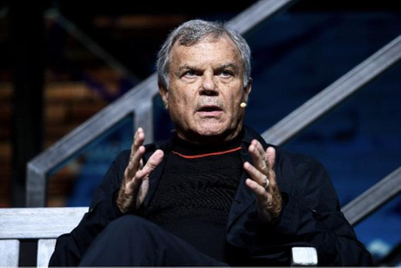
 Deirdre McGlashan, CEO of wwwins Isobar Greater China, says NO
Deirdre McGlashan, CEO of wwwins Isobar Greater China, says NO
“I disagree with the basic premise that social media is not an avenue for marketing.Social media is an increasingly important part of consumers’ lives, facilitating connection and engagement with each other and yes, brands as well. Effective marketing in the social network space requires that brands become a part of the community, offering things of value, sharing, soliciting opinion - being as engaged with the consumer as they want their consumers to be engaged with them.
Treating social media sites solely as a space to put display advertising is a very limited view of social media marketing. Social media does not really operate one to one but rather as a gathering - a gathering of friends or people of shared interests. Brands that participate in these gatherings and bring something to the table - new, cool, relevant, useful, whatever is appropriate for the brand - are the really successful brands in the space.
Consumers today, especially young consumers, are very media savvy. They want marketers to follow the basic social constructs of a society: don’t be creepy; don’t try to trick me; treat me with respect.”
 Frederick Saurat, co-founder of The TMS Way, says YES
Frederick Saurat, co-founder of The TMS Way, says YES
“Recently, Procter & Gamble disclosed a strong interest in social networks but, as Martin Sorrell said, the medium is based on personal relations and intrusive advertising programmes that can have a negative effect to a brand’s image. I think the ‘push ad display model’ in social networks (on desktop and mobile) is just crap, since users consider the ads as spam and brands start to become unsatisfied with the idea, hence asking for more concrete ROI.The real danger comes in when you start reading that the future of online advertising is ‘engineers as marketers’, because this leads you to projects like the Facebook Beacon project. The channel definitely has high potential for advertisers but it needs to be approached reversing the actual system, allowing social network users to choose who they want to follow.
In other words, users have the control to select from whom they want to receive promotions and with whom they want to engage in conversation. Another challenge for offline brands is to measure the medium and drive the audience to their points of sale.”
 Morihiro Harano, creative director at Drill in Tokyo, says YES
Morihiro Harano, creative director at Drill in Tokyo, says YES
“I agree that the advertisers should not be rushing into social media randomly.However, the reason I believe is not because of the privacy issue mentioned by Sir Martin. As he said, privacy is a social norm; we must follow and need to be aware of it, yet I think the issue does not only lie in the social media. It also lies in the standard digital ads, which are not necessarily categorised under the name of ‘social’. We must additionally consider such issues in existing analogue ads, like direct mail.
In the social media society where a social graph can be plotted, each individual becomes a ‘node’. The consumer is segmented on many levels: the type of people they’re hanging out with; the particular comments they’re reacting to; the type of music they’re downloading. The identity of a person will be expressed as a direction on the graph emanating from the individuals. In short, ‘we are what we love’.
So, the driving force of social media is ‘love’. When the individuals or the brands win people’s ‘love’, they will succeed; and others will be ignored or even became targets of painful condemnation.”
 Clinton Simpson, MD of UM Singapore says YES
Clinton Simpson, MD of UM Singapore says YES
“Yes, everyone is rushing into social media. It’s the gold rush of the current communications age.It’s rare that we talk to a client about communications and social media is not part of the conversation. And why not - penetration is high and people are spending lots of time in that space. More importantly it is an ‘active’ environment where people go to exchange ideas, form opinions and navigate decisions. Brands want to be part of the conversation.
Just like any gold rush not everyone is striking gold. Social media is not a push-advertising environment; it just doesn’t work. In fact running a bunch of ads within social media can be counterproductive, annoying more people than it engages.
It just doesn’t work that way. You need to ask yourself how your brand is going to add value to the consumer experience - what is it going to say or do that people will find entertaining or interesting?
Increasingly we are using social media to listen - as a real time gauge of consumer opinion and intent. This increases our understanding of what is going on and gives the brand a reason for being.”
What do you think?
This article was originally published in the 25 March 2010 issue of Media.




.jpg&h=334&w=500&q=100&v=20250320&c=1)
.jpg&h=334&w=500&q=100&v=20250320&c=1)
.jpeg&h=334&w=500&q=100&v=20250320&c=1)
.jpg&h=334&w=500&q=100&v=20250320&c=1)
.jpg&h=334&w=500&q=100&v=20250320&c=1)
.jpg&h=334&w=500&q=100&v=20250320&c=1)





.png&h=268&w=401&q=100&v=20250320&c=1)


.jpg&h=268&w=401&q=100&v=20250320&c=1)
.jpg&h=268&w=401&q=100&v=20250320&c=1)